Guest blogger Mireille shares how she uses MyBodyModel’s paper vs. digital fashion drawing templates for each step of her creative process – from style exploration, to wardrobe planning, to sewing planning (and even drafting her own patterns)!
It all starts with a simple sketch
Before starting a project, a sketch is an important step to visualize what we imagine. But in the past, with sewing, I used to start without thinking too much. When I had a sewing pattern or fabric, I just began. But I was often disappointed with the result. I realized that had to change something. When I discovered MyBodyModel, I knew this was what I needed. MyBodyModel allows me to enter into a stage of reflection before starting a new project, even though my mind always resists a little bit. Drawing for visualization has changed my approach to sewing a lot.
Paper vs. digital fashion drawing templates
MyBodyModel offers both digital digital and paper croquis fashion templates. To draw, I use digital and analog interchangeably. Both suit me. Each one has its place in my creative process.
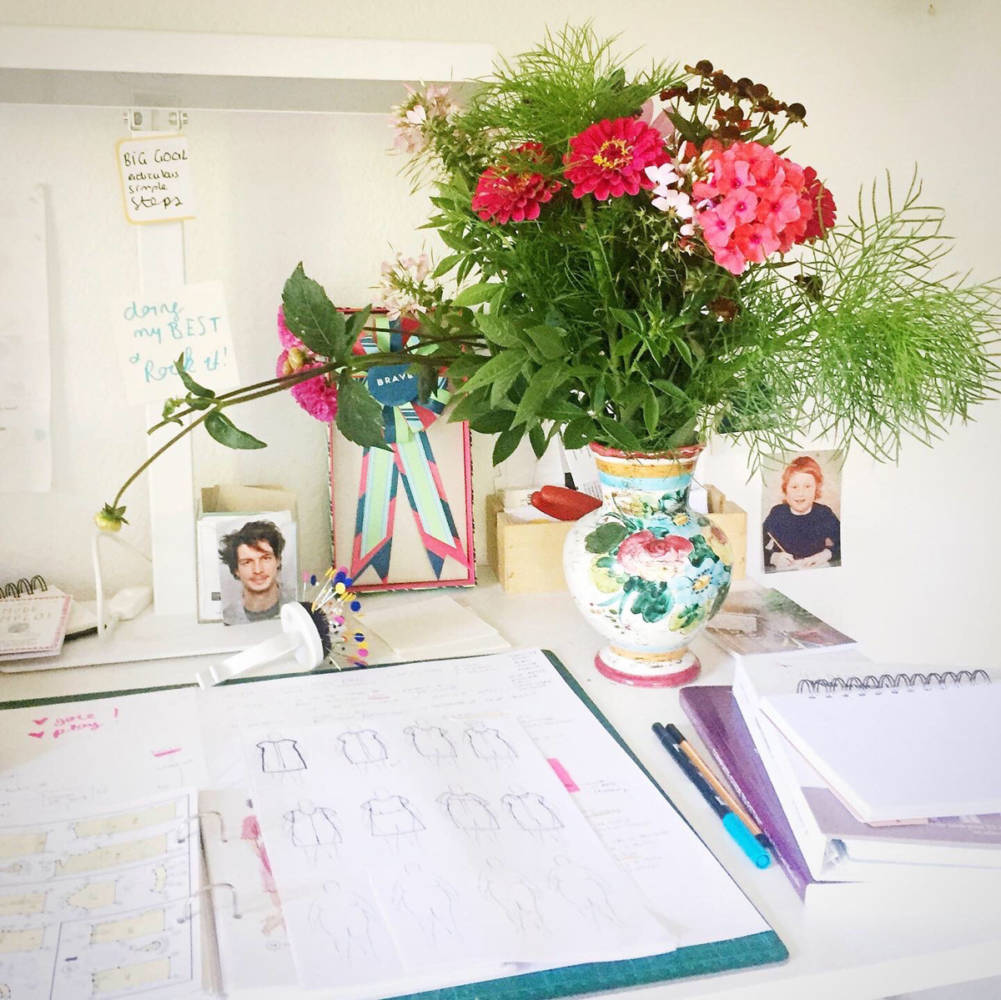
Step 1: Wardrobe & Style Exploration
I am currently working on my wardrobe for this fall. My first step is to think of outfits that I like and to determine what kind of pieces I need to achieve what I’m looking for. For this stage of my creative process, I find that nothing replaces the good old paper and pencil tandem.
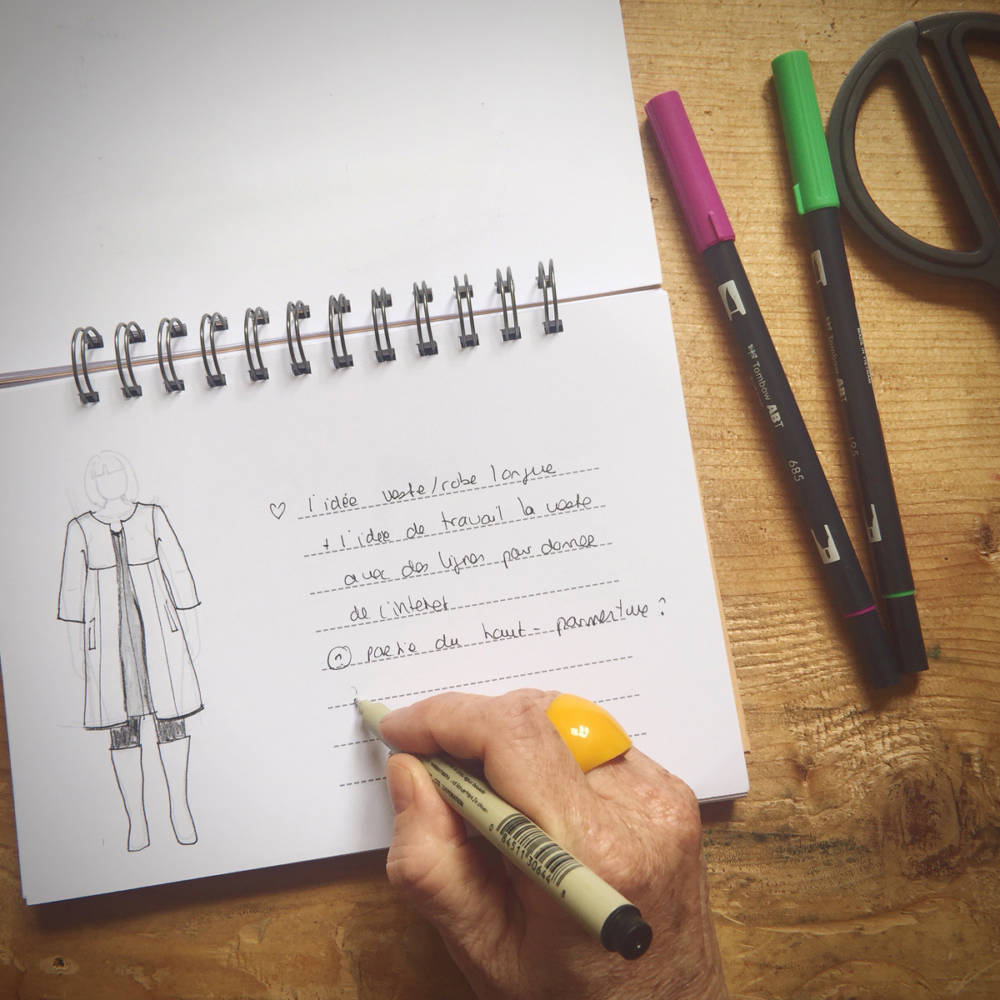
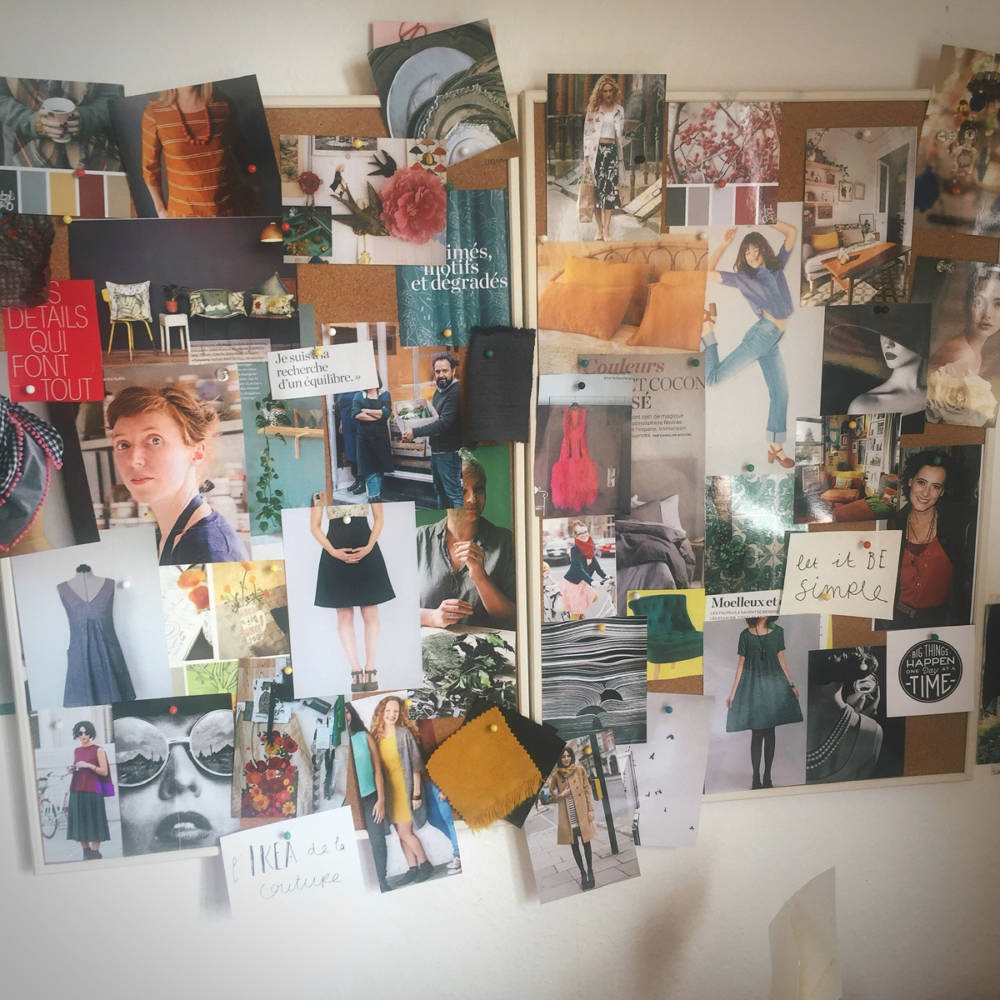
With drawing, I’m then able to think about different versions and to assess how and if they are versatile. At this point, I do not go into details. I can annotate my drawings about what kind of fabrics I would see for such a project, but what I’m looking for at this stage is to explore shapes and play with layering. I love layering!
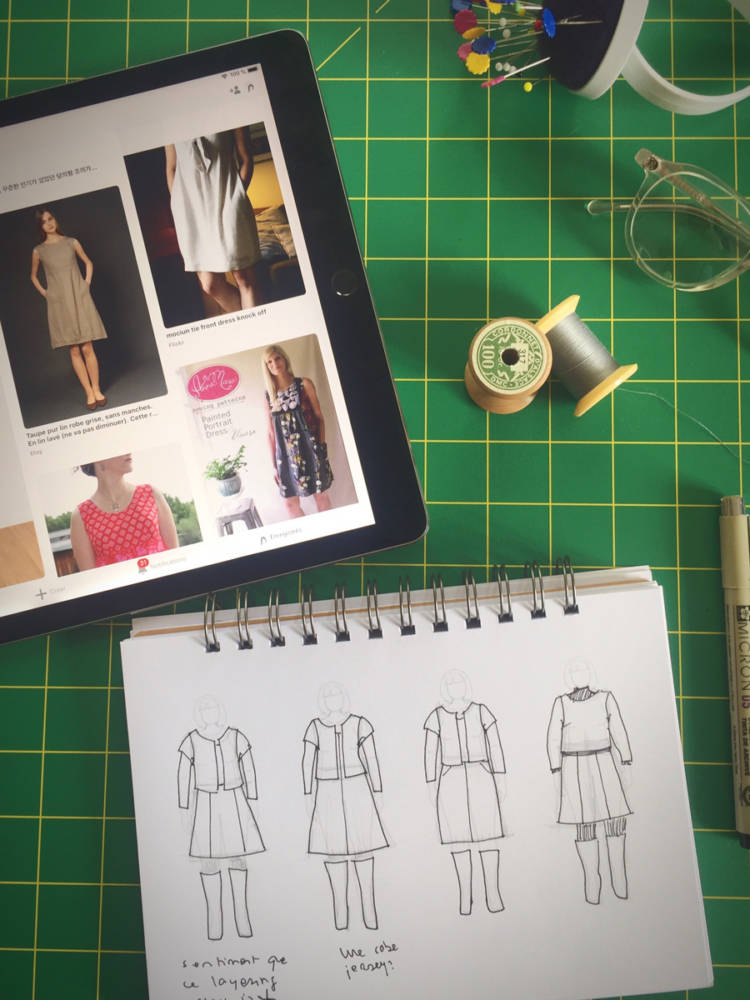
Honoring my now body
MyBodyModel has helped me to look at my own body in a whole new way. I’ve learned not to see it as a problem, but a beautiful temple that I will seek to honor. While drawing, I learned to play with my curves and this shift makes a huge difference. It may just be a beginning, but it’s a real and significant change.
My very personal spiral sketchbook
I tried several approaches with MyBodyModel and I came to the conclusion that I needed a notebook in which I could draw and let my thoughts unfold from one sketch to the next. I like the idea of holding everything in one place. A notebook allows me to compare and follow the thread of my thoughts through my sketches.
To make it happen, I printed MyBodyModel on slightly thicker sheets of paper, cut them in two, then took out my Zutter Bind-it-all tool in order to bind them and to get the perfect spiral notebook I was looking for.

I opted for a layout with three figures per page, but I occasionally insert a page with a single figure to go into details or jot down my ideas.
And let me tell you: I love it! I sometimes take it with me and draw what inspires me in front of the TV or on the terrace of a cafe.
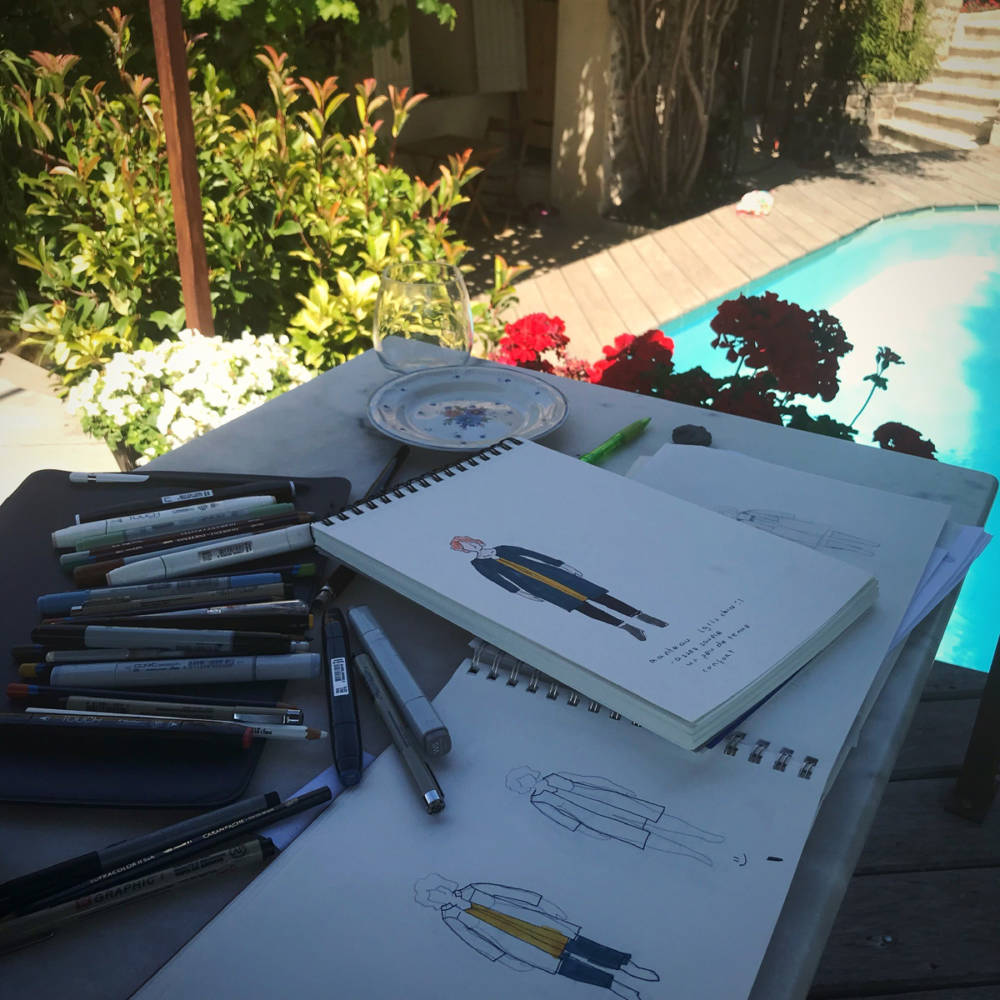
Step 2: Exploring Design Details
Once I know what I want to make, I go into the details. I focus on the garment that is at the top of my sewing projects list and I try drawing several versions. I play with the collar, sleeves, length, fit. Then I try to associate it with other pieces, to see if it works.
Let me show you a bit of this process with the example of a little polka dot top that I am currently working on. Since the beginning of the year, I have been learning to create my own sewing patterns. So I started to draft this top, by drawing it on MyBodyModel figure. It’s ideal! I can explore and evaluate my ideas before embarking on the longer process of pattern making and sewing.
I bought one yard of this fabric, a solid cotton with stretch because it was on sale and then because …. Polka dots! I’m always drawn to polka dots and stripes! With one yard of fabric, my choice was limited, but I immediately imagined it as a little top.
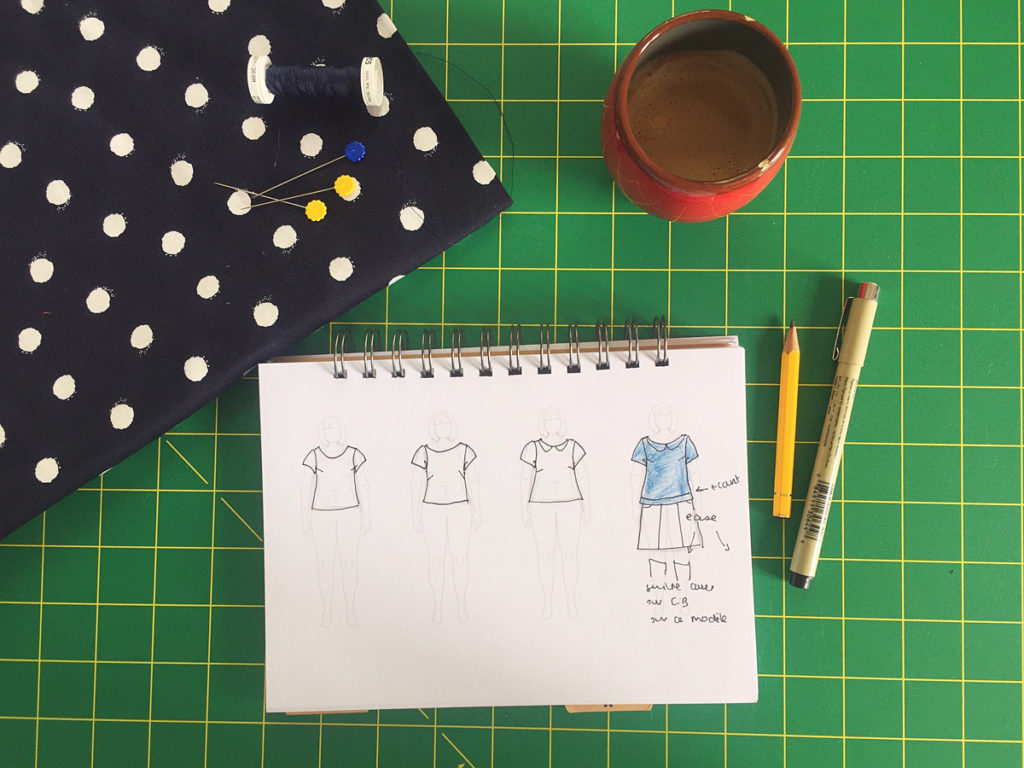
Step 3: Finalizing Design Details
When I need to work on the details and when I already know which fabric I will work with, then I tend to use digital sketching.
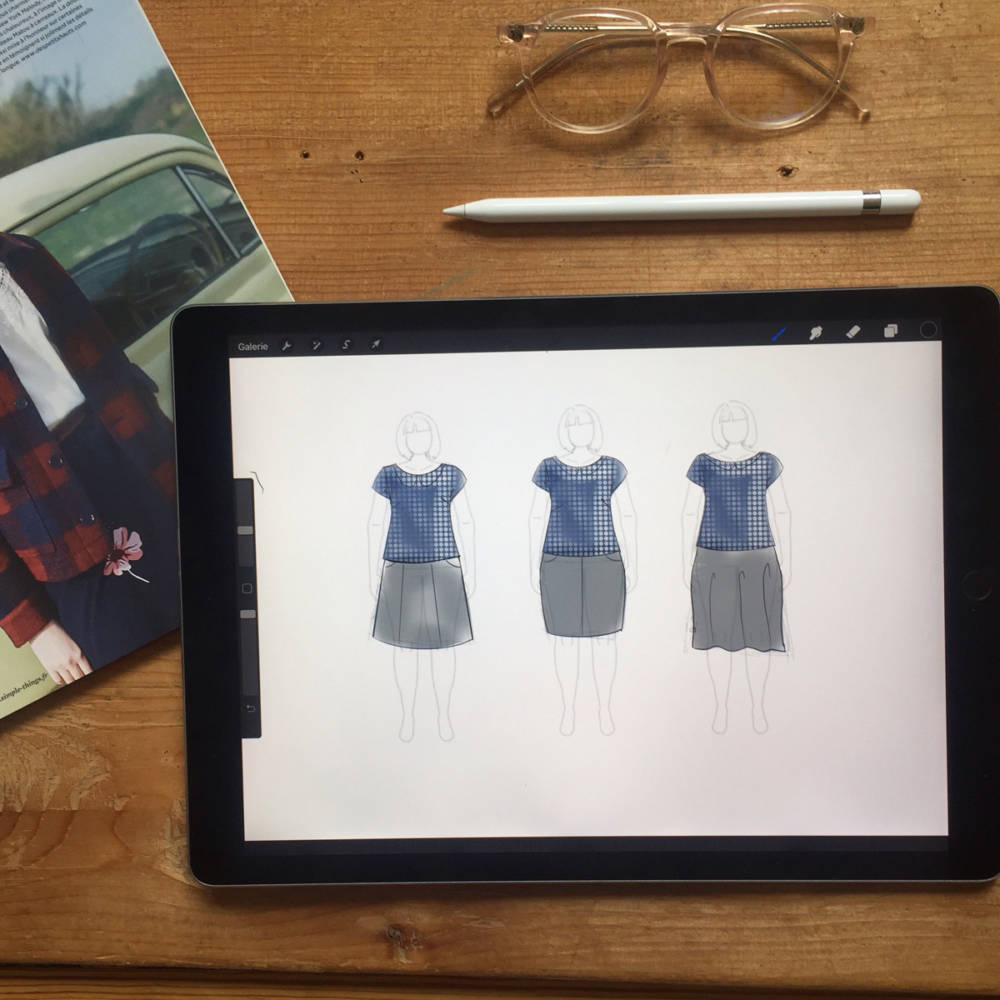
To draw digitally, I like working with two apps in particular: Procreate and Concept. Each app has its advantages and disadvantages.
This short video shows you my process through the example of my little white polka dot top and how to play with Procreate.
And, by the way, here is the end result:
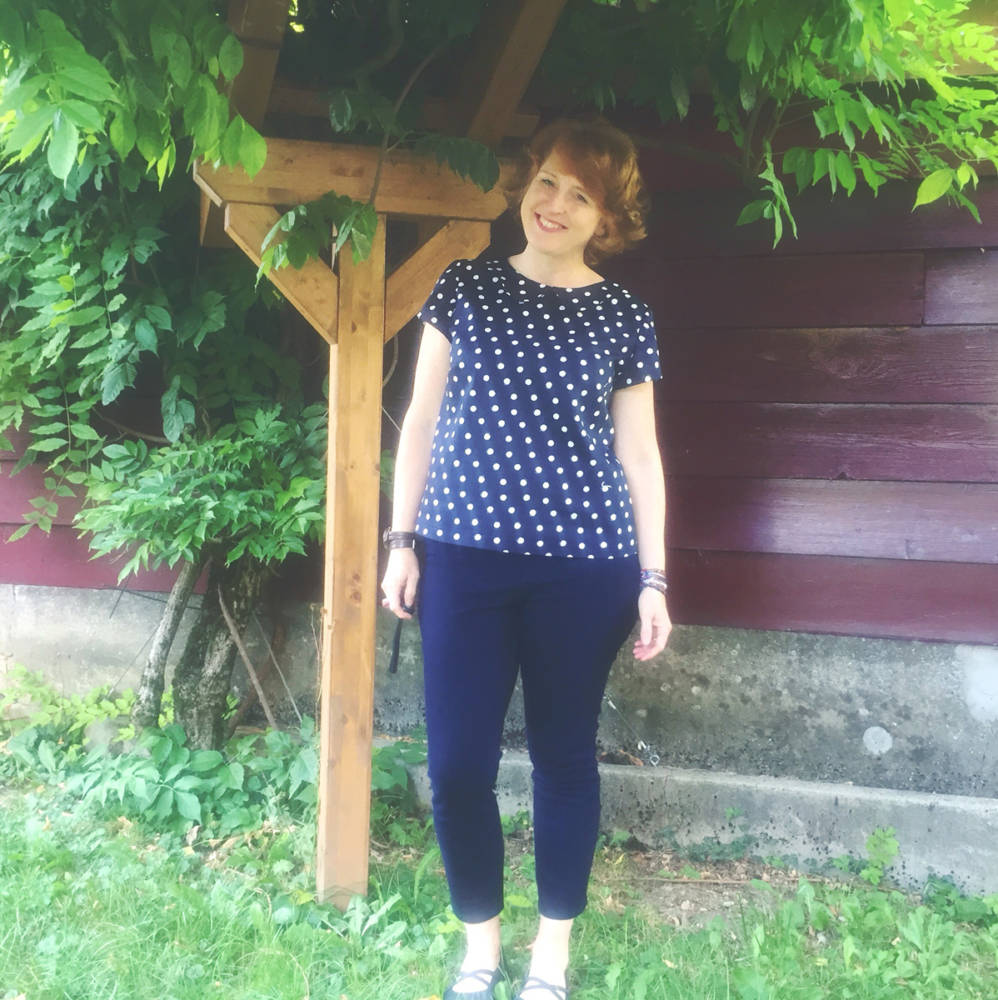
What if I don’t know how to draw?
“But I do not know how to draw,” you say to me… Frankly, it’s not mandatory. A drawing can be very elaborate and complex, or not at all. For me, the most important thing that matters is to experiment with proportions (as below).
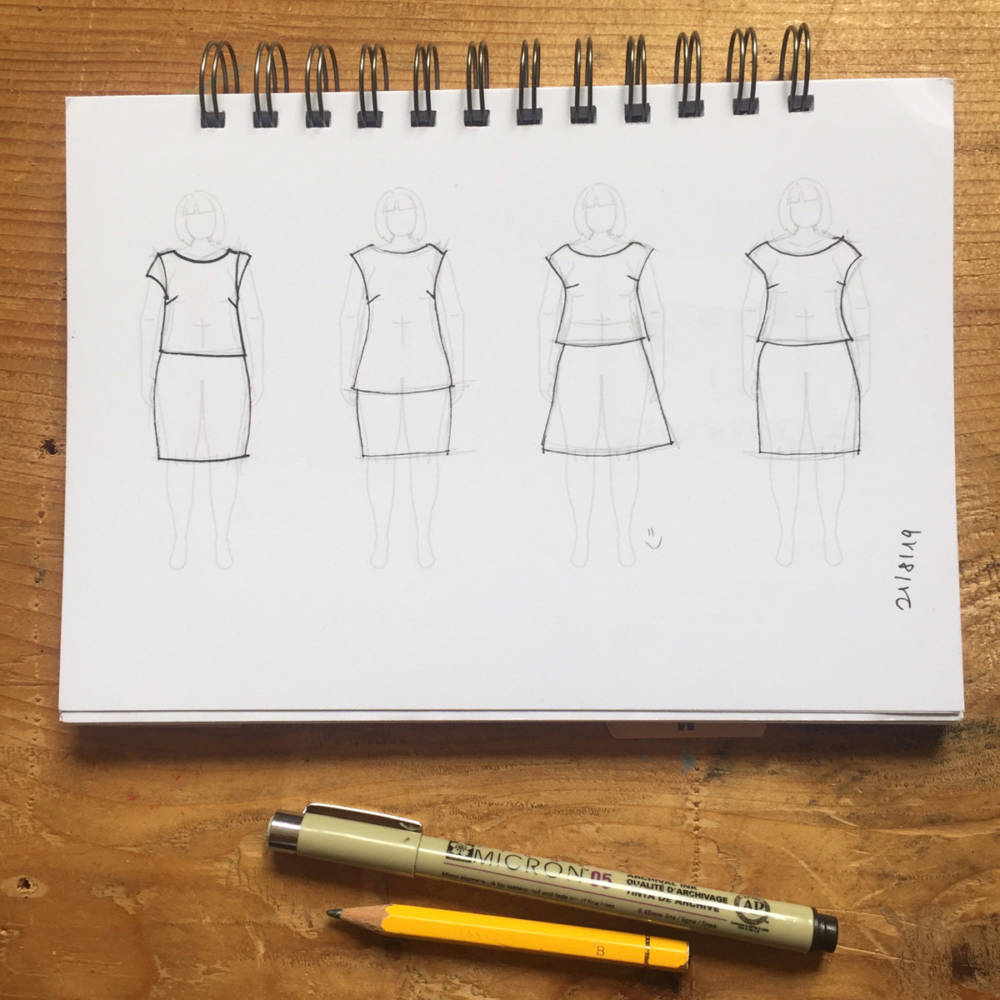
As you can see, details are not absolutely necessary. You get a sense of it and it may be enough to get you started.
And then, like any practice, progress come with practice. Try not to stay stuck right at the beginning. Then, just get started, get lost in the process, have fun. Try not to hang on too much on the result and rather cultivate curiosity and an open mind. To get started, check out MyBodyModel’s free YouTube video series, “Fashion Sketching for Absolute Beginners.” If you want to further your knowledge, I recommend Laura Volpintesta’s class on MyBlueprint.com (formerly Craftsy).
And above all, honor your shape and YourOwnBeautifulBody!
. . . . .
If you’re on Pinterest or other social media, we’d love it if you shared this post! Thank you!! <3
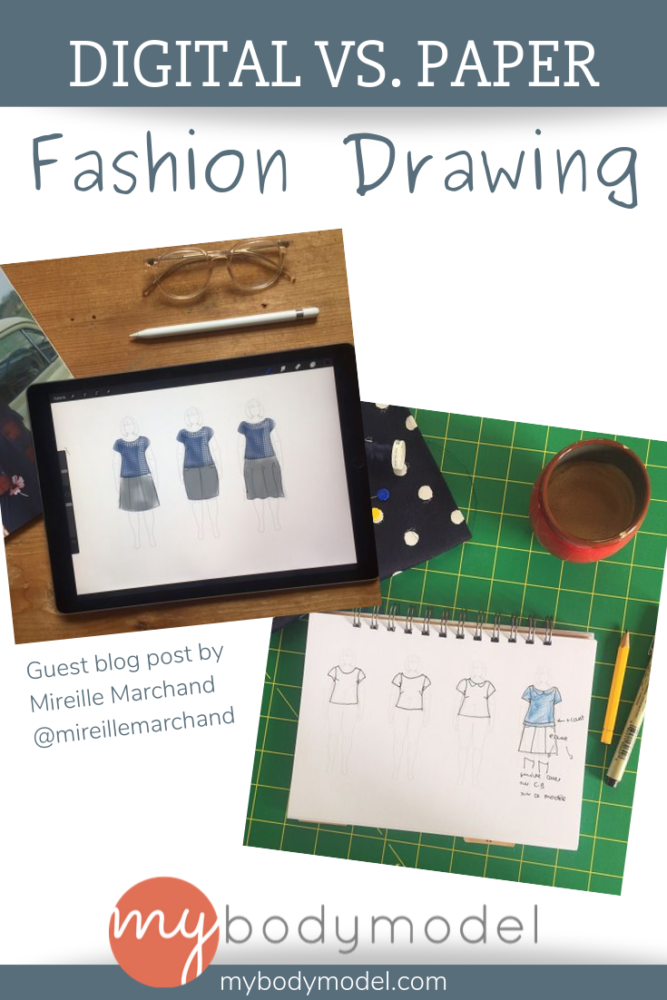
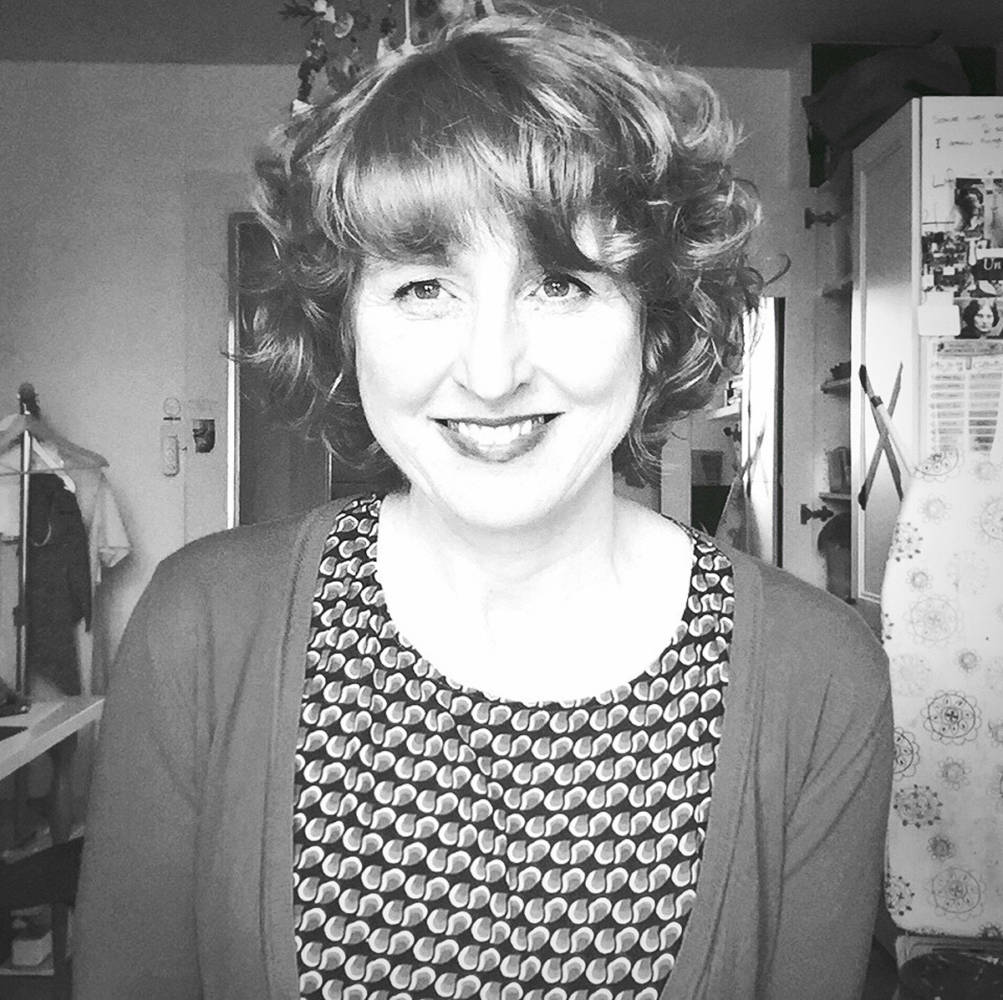
Mireille lives in the French part of Switzerland. She started sewing fifteen years ago, almost by chance. She can only remember that she fell in love with Japanese sewing patterns. At one point, she even tried to learn Japanese. That tells a lot about her passion! Even though she sewed on a regular basis, it was without consistency and purpose. Then two years ago, her body changed: she gained some weight and, as she puts it, her shopping sessions went from “chore to torture.” As she’s used to radical solutions, she decided to sew her own wardrobe: “I don’t find a dress for my body? I will sew my own perfect dress.” The learning curve was huge, but now her desire is to share what she learned and help other women to sew their own capsule wardrobes. She just started her own business (which is for now only in French, but keep in touch, as she plans to turn it into English as well). You can find her on Instagram @mireillemarchand or her website www.mireillemarchand.com.
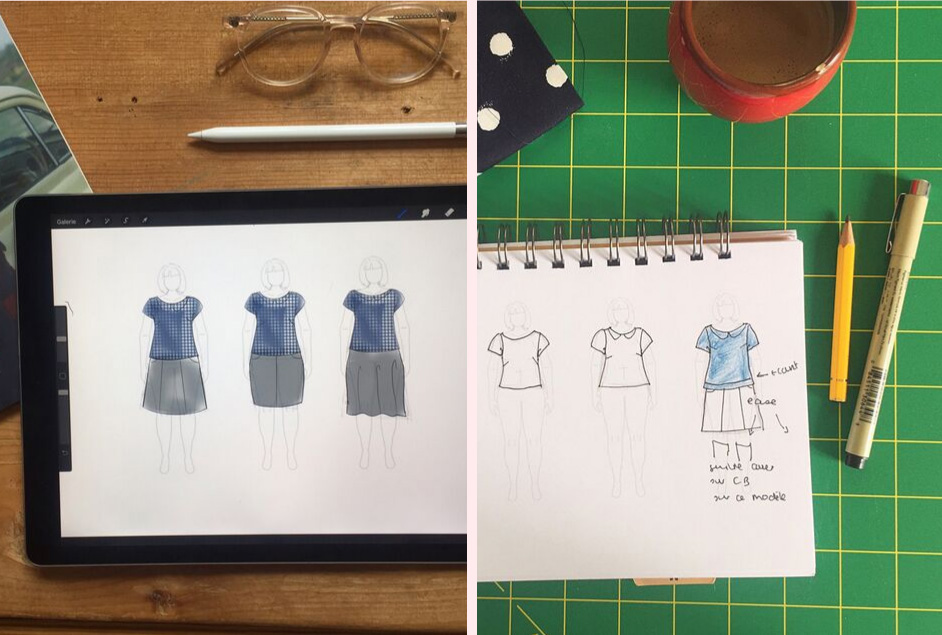

2 thoughts on “Paper vs. Digital Fashion Drawing: My Creative Process, by Mireille”
Thank you for this very helpful article. I’m still figuring out what technique works best for me and love to see pieces about other people’s method. I think I need a personal sketchbook like yours!
What a great post- and the finished blouse is wonderful. I struggle with the digital drawing but love dressing my paper doll with hand drawn garments. I use a metal box to keep all her clothes in and dress her using magnets on the inside lid. This keeps them in place as I ponder… thanks for the peek inside of your process!